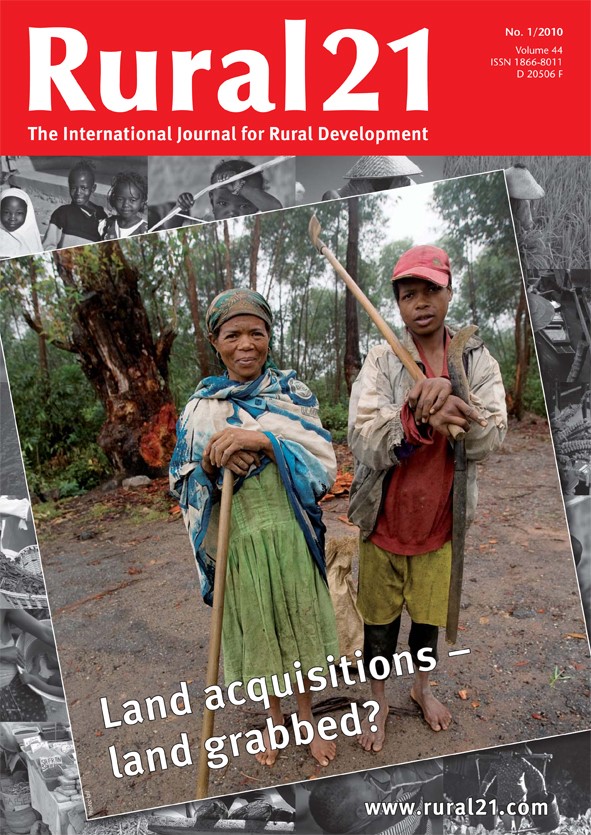DLG-Verlag was founded in 1952 as a subsidiary of DLG e.V. (Deutsche Landwirtschafts-Gesellschaft - German Agricultural Society) with its headquarter in Frankfurt/ Germany. The publishing company provides expertise for the agricultural and food sector.
With its subsidiaries Max-Eyth-Verlag and DLG-Agrofood Medien GmbH the DLG-Verlag offers books and magazines, as well as catalogs of the DLG's international DLG exhibitions.
Members:
Resources
Displaying 231 - 235 of 316An opportunity for sustainable growth in Africa
African Governments are planning to leapfrog development and move to a middle income economy in a short time. This requires a sustainable strong economic growth, based primarily on African agricultural resources and initially with huge resources from outside, partly provided by donors but mainly from the private sector through sustainable and responsible investments. All actors should engage in a serious dialogue on how to facilitate and create good investments in order to attract the necessary resources for development.
African farmers develop their own rice cultivars
Nerica – New Rice for Africa is the name of the great biotechnological success in rice breeding. What scientists created in the lab using modern methods, namely hybrids of African rice and Asian rice, had already come into being decades ago by chance in West African ?elds.
Big push for development or erosion of local livelihood?
The recent upsurge in Foreign Direct Investment (FDI) in land raises the hope to bridge the gap of decades of underinvestment in developing countries’ agricultural sector, but it may also threaten host countries’ food security and increase the vulnerability of the rural population. Based on four country case studies conducted by Deutsche Gesellschaft für Technische Zusammenarbeit (GTZ), this article illustrates distinct impacts of large-scale investments in agricultural land.
Regional rural development needs people empowerment
Lessons learnt from India prove that people empowerment through self-help groups and target group orientation still matters for sustainable rural development. However, this is only true if economic, socio-cultural, political and environmental empowerment interlock. This article makes an argument for a grassroot-level and participative approach of people empowerment in regional rural development.
A threat to global food security
As the world continues to experience a severe food crisis, with over one billion people going hungry, land grabbing – the purchase or lease of land by wealthy, food-insecure nations and private investors from mostly poor, developing nations in order to produce food crops for export – is gaining momentum. Some governments and international agencies believe that the in? ux of money and technology can turn land grabbing into a win–win situation for all involved. But is this really the case?


